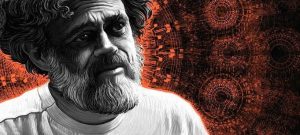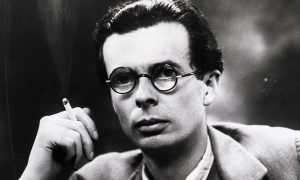Terence McKenna, an American ethnobotanist and mystic who advocated for the responsible use of naturally occurring psychedelic plants, famously wrote in his 1993 boundary-breaking book, Food of the Gods: The Search for the Original Tree of Knowledge A Radical History of Plants, Drugs, and Human Evolution, “Life lived in the absence of the psychedelic experience upon which primordial shamanism is based is life trivialized, life denied, life enslaved to the ego.”
Now, nearly 30 years later, the medical field has moved into the realm of esoteric psychology with its research on the therapeutic aspects of psilocybin, and in doing so, may not only revolutionize the treatment of people with mental health issues, but simultaneously usher in a dynamic that unifies science and spirituality.
A recent study from Johns Hopkins University states, “The molecular structure of psilocybin, a naturally occurring psychedelic compound found in ‘magic mushrooms,’ allows it to penetrate the central nervous system and the scientific and medical experts are just beginning to understand its effects on the brain and mind and its potential as therapeutics for mental illnesses.”
So much like meditation and shamanic trances bypass the rational aspects of our nature and tap into something deeper and cosmic, psilocybin seems to dissolve the divide between our limited, intellectual, waking reality as defined by our frontal lobe, in particular the prefrontal cortex, and our emotional, primordial aspects embedded in the amygdala, hypothalamus, and hippocampus.

Preliminary testing of the brain’s reactivity to psilocybin via functional MRIs (fMRI) has yielded some interesting results that corroborate this stance of dissolution, though a better term might be deactivation of our more rational qualities. A recent study by the Imperial College London found that, “After receiving psilocybin brain blood flow decreased, indicating reduced activity. In particular, activity in areas regarded as important network hubs that maintain the connectivity of the various areas of the brain showed the most consistent deactivation. These areas are known as the medial prefrontal cortex (mPFC) and the posterior cingulate cortex (PCC).”
Without getting too technical, the upshot is that it appears that by deactivating the overly rational component of the brain responsible for processing day-to-day stimuli (the part of the brain that also receives the most emphasis in Wester culture), we allow for other components that are more intuitive, spiritual, and emotional to regain prominence.
As Scott A. McGreal, MSc. writes, this is “consistent with Aldous Huxley’s idea that normal consciousness acts like a ‘reducing valve’ that actually constrains how much information a person normally takes in, so that one is not overwhelmed by chaotic stimuli.” In Freudian terms, this would mean the Id would gain the upper hand, while in Jungian terms, access to the collective unconscious would be augmented.
The bottom line is that psilocybin has intimate connections to our spiritual selves, opening us up to a grandiosity of experience that has transformative, healing powers because it fills the existential gap that so many people find themselves unknowingly mired. People often feel “stuck” as they plod through life without inspiration or a sense of something at once ethereal and substantive in the works. In other words, we live in a state of being that is not fully human and present, causing us suffering in the form of what we perceive as mental illness. Or as Aldous Huxley puts it so eloquently in his prophetic book, Brave New World Revisited:
The real hopeless victims of mental illness are to be found among those who appear to be most normal. Many of them are normal because they are so well adjusted to our mode of existence, because their human voice has been silenced so early in their lives, that they do not even struggle or suffer or develop symptoms as the neurotic does. They are normal not in what may be called the absolute sense of the word; they are normal only in relation to a profoundly abnormal society. These millions of abnormally normal people, living without fuss in a society to which, if they were fully human beings, they ought not to be adjusted.

Source: returnofkings.com
This is philosophically in sync with McKenna’s perspective, and increasingly supported by psychedelic research, though we are in the nascent stage of understanding. Ido Hartogsohn, a psychedelic scholar, artist, activist and assistant professor at the Graduate Program in Science, Technology and Society at Bar Ilan University, Israel, puts his finger on the pulse of this existential angst and posits that psychedelics offer a meaning-based experience, stating:
“I am referring to the remarkable tendency of these agents to enhance the perception of meaning, or, in other words, to cause things to appear dramatically more meaningful than they would otherwise seem to be.”
This connection between personal meaning and cosmic connectedness, and our failure to address this notion in Western medicine, is at the crux of why psilocybin may be not only so promising, but also alluring and potentially frightening. Or, as McKenna put it: “The message of psychedelics is that culture can be re-engineered as a set of emotional and spiritual values rather than products. This is terrifying news.”
At Newsweed.com, we adhere to three simple principles: truth, balance, and relatability. Our articles, podcasts, and videos strive to present content in an accurate, fair, yet compelling and timely manner. We avoid pushing personal or ideological agendas because our only agenda is creating quality content for our audience, whom we are here to serve. That is why our motto is ”Rolling with the times, straining for the truth.”
Your opinion matters. Please share your thoughts in our survey so that Newsweed can better serve you.
Charles Bukowski, the Los Angeles beat poet that captured the depravity of American urban life once said, “There is something about writing poetry that brings a man close to the cliff’s edge.” Newsweed is proud to stand in solidarity and offer you a chance to get close to the cliff’s edge with our first Power of Poetry Contest.
Are you a budding bard, a versatile versifier, a rhyming regaler? Do you march to the beat of iambic pentameter, or flow like a river with free verse? If so, here’s your opportunity to put your mad poetic chops to the test. Enter our poetry contest for bragging rights and an opportunity to win some cash!






